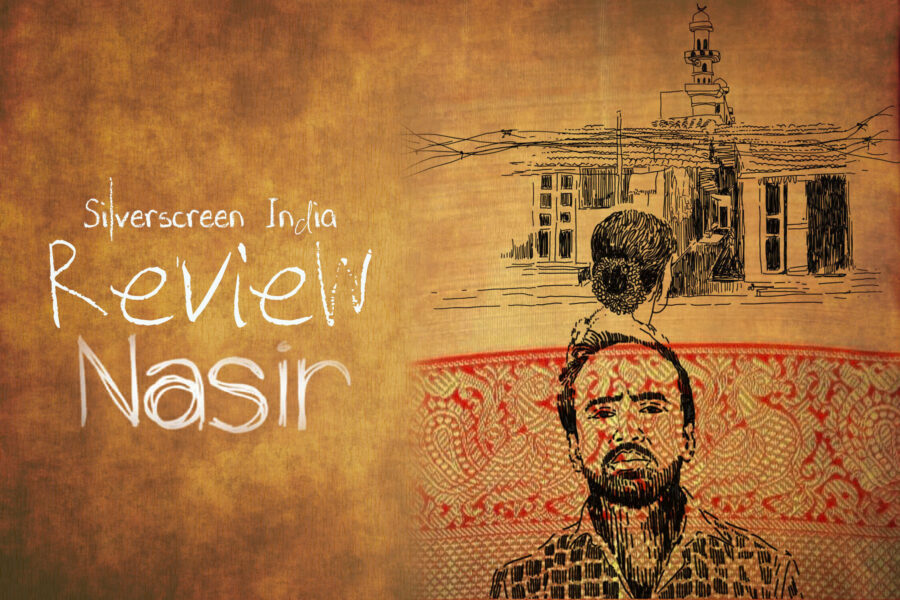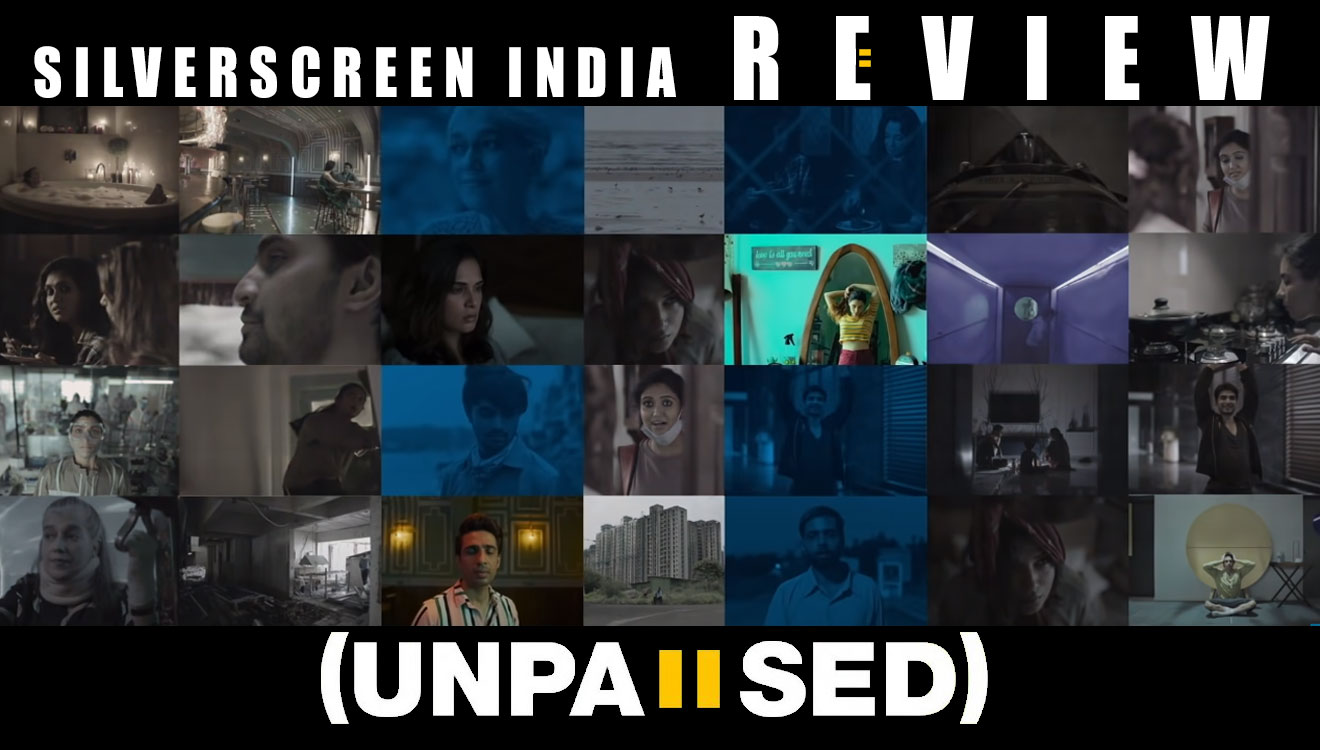Writer Tamizh Prabha recently lamented the sacrifice of form at the altar of political cinema. He was right. And it’s not new to the Tamil film industry, boasting of a laundry list of message heavy films. Though the current political context has blurred the lines between form and message, curiously, for both the maker and the audience.
He articulated it as best as anyone could, but I wonder what he’d think of Arun Karthick’s new film Nasir. My guess is that he’d be mighty impressed. Nasir is about a Muslim man in Coimbatore, a salesperson in a small-scale textile showroom. The film is based on a short story, Oru Gumasthavin Kadhai, The Story Of A Clerk By Dilip Kumar.
Also read, Coimbatore-Based Filmmaker Arun Karthick’s ‘Nasir’ To Compete For Tiger Award At IFFR 2020
Arun Karthick’s earlier feature Sivapuranam was about a photographer, so the play of light, closeups of daylight on his skin, bike headlight in a cul-de-sac, manipulation of his images, was a natural choice. Nasir too is a dispassionate look at the most mundane details of a day in a man’s life, complete with a soundscape that assumes the weight of the narrative.
Like major portions of Sivapuranam, Nasir begins with light play as the yellows of the streetlights give way to hues of dawn and our protagonist, played by Koumarane Valavane, continues his foetal slumber. But dig into the mundane, a portrait of quiet struggle emerges, a struggle that’s not easy to grasp for the “outsider”.
Nasir’s log line is a transparent consequence of the aspect ratio, its Super 16mm 4:3 footage giving the effect of being boxed inside this man’s life. We are not the only trapped, it is also the boxed in life of an Indian Muslim that we rarely see on screen. The regular kind who has identifiable family issues, relatable financial issues and tenuous relationship issues.
There is hardly any space for this man in his own world, he steps out to listen to the sermons from a mosque – talking of peaceful Islamic kingdoms of the past, notably Oudh (derived from Ayodhya) – and walks with his wife to the bus stop, later to the shop where he works, the mosque’s loudspeaker giving way to the noise of another locality blaring religious hate speech about invaders and migrants and who is a Tamil God or how Hindu faith and way of life is getting eroded.
Nasir’s immediate troubles are bigger than that, his savings aren’t enough to treat his mother’s cancer, he is looking for better job prospects and as a last resort, thanks to a friend, a job in Abu Dhabi sounds ominously imminent. We can deduce that it is only his financial troubles that make him consider that decision but it could also be a subconscious one of living in this country, cramped between forces that are out to get him, a normal human being going about his banal life.
Events in Nasir don’t occur so much as they exist. The most beautiful stretch is that of a regular day in the textile showroom, owned by a Saiva Pillai, with a framed photograph of the holy religious triad and a statue of Krishna that Nasir garlands. We then go through the rigors of selling. A young man is trying to work a woman buying shirts for her partner who’d rather be elsewhere. “This colour will suit him,” he says only for her to remark that she’ll be the judge of that.
Nasir is working with two elderly women and he is talking about how grandmothers dress these days as he tries to sell them sarees, his dialect and manner of speaking turning extra personable through understated alterations to deal with Hindu customers.
The saleswoman is trying to sell modern undergarments to a young customer only for the mother to object, the saleswoman clearly more disappointed than the daughter. A religious Hindu salesman is working with another pair of women. She says she doesn’t want orange and asks for pink; the salesman having failed in pushing his agenda, repeats, “Orange vendama?”. The sequence is fascinating because it shows us how the political has crafty and furtive ways of arising out of the personal. It’s what Arun Karthick tries to strain out of the mundane.
Arun Karthick’s love for aural imagery and atmosphere not only bleeds into Nasir but also aids his material. A friend invites the shop owner for lunch and the owner begins naming every famous restaurant to hole-in-the-wall joints and their signature vegetarian dishes, not forgetting to mention a waiter the friend must avoid, a dark skinned, bearded one with body odour.
Nasir overhears several such conversations that must be uncomfortable for an Indian (Coimbatore here) Muslim to live through every day but that’s the nugget the film captures, how his existence is always at peril in a duplicitous world where idioms reveal more about an individual than their symbolic exhibition of secularism, and violence exists even in seemingly inconsequential anecdotes like the one the young salesman narrates about his orange-loving colleague.
Recommended
Nasir’s moments of comfort are at home, with a loving wife who is away for a family event, and he can take a nap listening to Ilaiyaraaja or Begum Akhtar, a singer from Oudh, Faizabad, now renamed as Ayodhya district. That’s the erasure that is always on Nasir’s mind, we realise, while he busies himself with myriad domestic issues, a lot of which he articulates in the letter he writes for his wife. The letter tells us a lot from the simplest of details about his family to googly of a reveal that is trotted out like a footnote. It makes us wonder, what could be the story behind that reveal? Was it another uneventful life robbed off harmless existence by an external force? It is left unspoken but not unsaid.
One image stays with us. The shot of a mug floating in the wash area of Nasir’s mosque. The mug’s brim quivers to stay above the water, which is Nasir’s day-to-day life reduced to a single shot.
Nasir was screened as part of MAMI Mumbai International Film Festival’s Home Theatre programme. It had its premiere at IFFR 2020.
The Nasir review is a Silverscreen original article. It was not paid for or commissioned by anyone associated with the film. Silverscreen.in and its writers do not have any commercial relationship with movies that are reviewed on the site.



